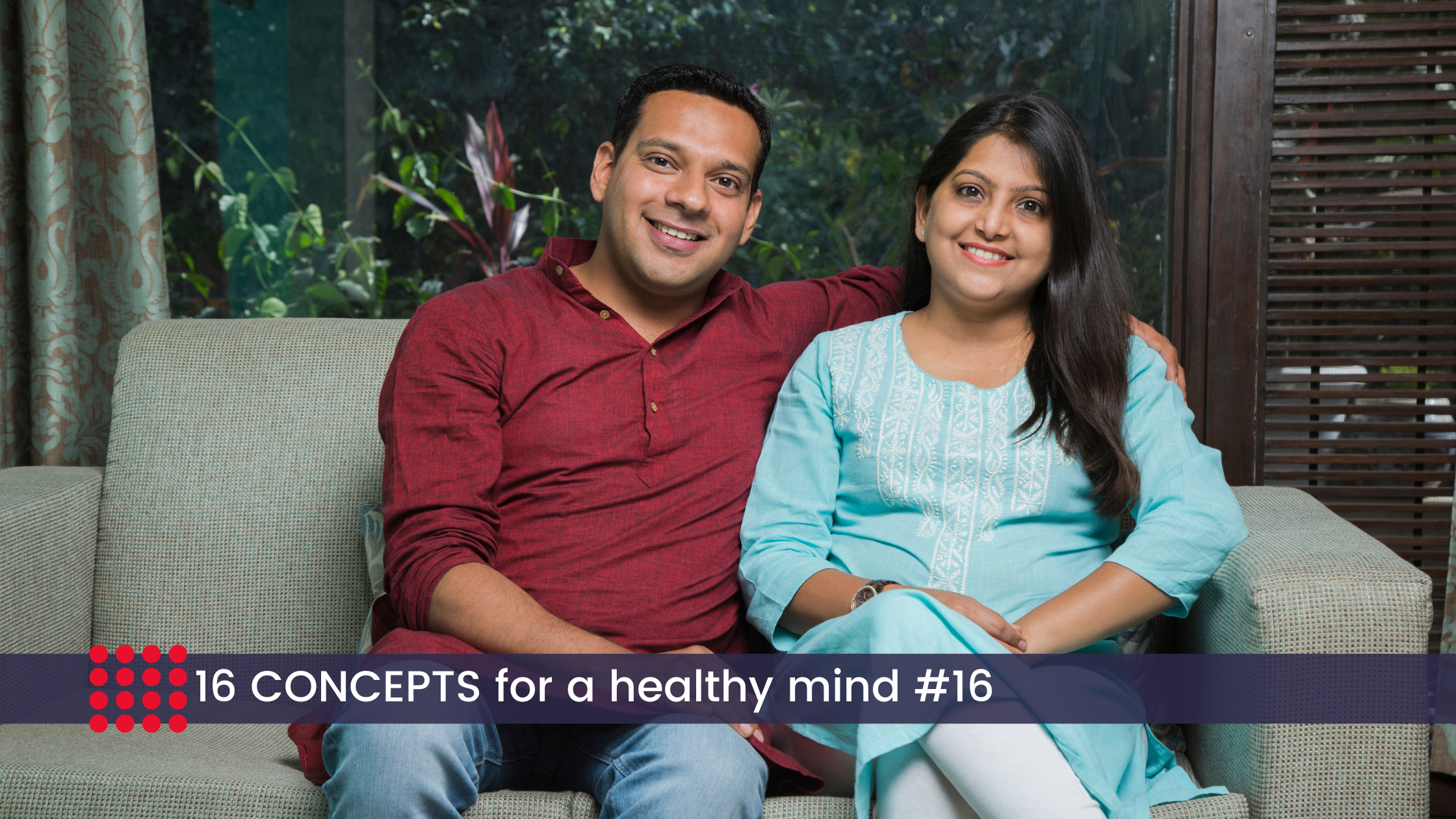Want a quick way to find and fix your personal blind spots?
Ever looked at someone else and felt negative emotions?
Ever heard the psychological term “perception is projection”?
Here, red10 ‘s Will Sudworth explains the final statement from the 16 concepts held by those with a healthy mind, from the research of Neuro Linguistic Programming (NLP).
What do we mean by blind spots?
Something in our thinking where we don’t notice certain things about our own behaviours.
Asad thought that she was “so cold”
On a leadership programme that was going deep in co-coaching pairs, Asad explained that he was a warm person yet he was increasingly finding his wife “so cold”.
From the lack of encouraging words, to the absence of helpful actions, through to the lack of physical contact…everything led Asad to believe that she was “so cold”.
You spot it you got it
This leadership programme attendees had been learning all of NLP’s 16 concepts of a healthy mind, and were now sharing their biggest issues before inviting coaching from each other.
Asad was horrified when his coaching partner asked: could this be “you spot it, you got it”… could it be you who is cold? At this point, Asad wanted to physically hit out. He wanted to say “you’re rubbish at this co-coaching” or even “how dare you”. He caught himself just in time.
Why was Asad so angry?
To answer, we need to first ask another question…
What does “you spot it, you got it” mean?
Here’s a another way of putting it:
If a person’s behaviour brings out a negative emotion in you. i.e. it annoys you, frustrates you or angers you
…then the chances are that you have a behaviour that is the same, or similar, or related in some way.
…and the likelihood is that it’s a blind spot
…and it would be helpful for you to fix it.
Interested in the psychological background to this concept?
In his letters to Wilhelm Fliess, Sigmund Freud wrote that he had come to believe that we spot that behaviour in another because we don’t want to accept that we have it in within us, and we exaggerate the amount that someone else has that behaviour or mindset.
This Wiki article nicely summarises the concepts, outlines the studies in the late 90s that criticised this hypothesis, and shares some refined models that further supported it.
So why was Asad so angry?
Asad was angry because he prided himself on being warm, yet in saying, “is this you spot it, you got it?” his colleague on the course was really saying “Are you cold in some way?”
Asad muddled through to finish the leadership programme module and went home.
Having travelled for hours, all Asad wanted to do when he got home was visit the restroom and then get a cup of tea.
As always, though, his wife called out “hello” and caught him on his way through the house…with urgent questions about who would be home, and when, to look after their child.
Asad thought they’d already dealt with everything on his wife’s list, yet on his way through the kitchen he could hear his wife talking to someone as he switched on the kettle.
He carried on through to the restroom, then made his cup of tea, and came back to his wife before asking her,
“who called?”
“no one”, she replied. What do you mean?”
“I thought I heard you talking to someone as I popped the kettle on”, Asad said.
“Yes” she said, “I was still taking to you. You walked off halfway through. You keep doing that. You’re so cold towards me these days.”
Fixing blind spots before others find them
Later, on the leadership programme, there was a respectful silence after Asad shared his homecoming scenario, going on to explain:
“I’ve been watching my wife carefully now. I see that she pauses between sentences for what can be minutes, yet to her it’s just a little pause and if I speak or do something else: I’m interrupting her flow. If only I’d known about ‘you spot it you got it’ before now. I could have sorted this pattern in me before she’d even noticed it”.
Do blind spots matter?
Yes. The bigger the role you do, the more your blind spots cause damage to people or even entire departments.
It’s like: the higher up you go, and the closer to the light, the longer is the shadow your blind spots cast out.
So what does this mean for you?
It means that this is a wonderful way to learn and speed up your personal development.
Who brings out the worst emotions in you?
What might those be telling you about your behaviours, patterns or mindset?

